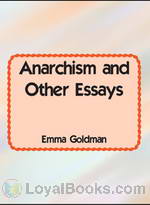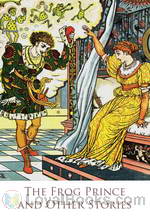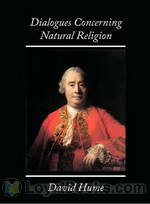|
Books Should Be Free Loyal Books Free Public Domain Audiobooks & eBook Downloads |
|
|
Books Should Be Free Loyal Books Free Public Domain Audiobooks & eBook Downloads |
|
Top Authors |
|---|
|
Book type:
Sort by:
|
By: Bertrand Russell (1872-1970) | |
|---|---|
 Our Knowledge of the External World as a Field for Scientific Method in Philosophy
Our Knowledge of the External World as a Field for Scientific Method in Philosophy
| |
By: Flavius Josephus (37 - c.100) | |
|---|---|
 The Antiquities of the Jews
The Antiquities of the Jews
Antiquities of the Jews was a work published by the important Jewish historian Flavius Josephus about the year 93 or 94. It is a history of the Jewish people, written in Greek for Josephus' gentile patrons. Beginning with the creation of Adam and Eve, it follows the events of the historical books of the Hebrew Bible, but sometimes omits or adds information.Volume 1 contains Books 1-5 and ends with the dedication of Samuel and death of Eli the priest. | |
 Minor Works of Josephus
Minor Works of Josephus
There are 3 parts to this collection.(1) Against Apion is a two-volume defense of Judaism as classical religion and philosophy, stressing its antiquity, as opposed to what Josephus claimed was the relatively more recent tradition of the Greeks. Some anti-Judean allegations ascribed by Josephus to the Greek writer Apion, and myths accredited to Manetho are also addressed.(2) Discourse To The Greeks Concerning Hades describes the author's views on the afterlife against the prevailing view of the "Greeks" (i... | |
 Against Apion
Against Apion
| |
 The Life of Flavius Josephus
The Life of Flavius Josephus
| |
 Josephus' Discourse to the Greeks Concerning Hades
Josephus' Discourse to the Greeks Concerning Hades
| |
By: Emma Goldman (1869-1940) | |
|---|---|
 Anarchism and Other Essays
Anarchism and Other Essays
Chicago, May 4, 1886. In the Haymarket region of the city, a peaceful Labor Day demonstration suddenly turns into a riot. The police intervene to maintain peace, but they soon use violence to quell the mob and a bomb is thrown, resulting in death and injuries to scores of people. In the widely publicized trial that followed, eight anarchists were condemned to death or life imprisonment, convicted of conspiracy, though none of them had actually thrown the bomb. A young Russian immigrant, Emma Goldman, had arrived just the previous year in the United States... | |
 Marriage and Love
Marriage and Love
| |
By: Arthur Schopenhauer (1788-1860) | |
|---|---|
 Studies in Pessimism
Studies in Pessimism
Arthur Schopenhauer, an early 19th century philosopher, made significant contributions to metaphysics, ethics, and aesthetics. His work also informed theories of evolution and psychology, largely through his theory of the will to power – a concept which Nietzsche famously adopted and developed. Despite this, he is today, as he was during his life, overshadowed by his contemporary, Hegel. Schopenhauer’s social/psychological views, put forth in this work and in others, are directly derived from his metaphysics, which was strongly influenced by Eastern thought... | |
 The Essays of Arthur Schopenhauer: the Wisdom of Life
The Essays of Arthur Schopenhauer: the Wisdom of Life
| |
 The Essays of Arthur Schopenhauer; On Human Nature
The Essays of Arthur Schopenhauer; On Human Nature
| |
 The Essays of Arthur Schopenhauer; Religion, a Dialogue, Etc.
The Essays of Arthur Schopenhauer; Religion, a Dialogue, Etc.
| |
 The Essays of Arthur Schopenhauer; Counsels and Maxims
The Essays of Arthur Schopenhauer; Counsels and Maxims
| |
 The Essays of Arthur Schopenhauer; the Art of Controversy
The Essays of Arthur Schopenhauer; the Art of Controversy
| |
 The Essays of Arthur Schopenhauer; The Art of Literature
The Essays of Arthur Schopenhauer; The Art of Literature
| |
By: Walter Crane (1845-1915) | |
|---|---|
 The Frog Prince and Other Stories
The Frog Prince and Other Stories
The three charming stories contained in The Frog Prince and Other Tales include a less-known fairy-tale called Princess Belle-Etoile besides the title story and Alladin and the Wonderful Lamp. Published in 1874, the tales are re-told by the famous illustrator Walter Crane, who has also provided some of the most lovely illustrations in the book. The book makes an ideal gift and both parents and children will certainly enjoy it. It's perfect for bedtime story-reading sessions and kids would love gazing at the beautiful Greek-style illustrations that are scattered throughout the book... | |
 Line and Form (1900)
Line and Form (1900)
| |
 The Sleeping Beauty Picture Book
The Sleeping Beauty Picture Book
| |
 A Floral Fantasy in an Old English Garden
A Floral Fantasy in an Old English Garden
| |
 The Absurd ABC
The Absurd ABC
| |
 Eight Illustrations to Shakespeare's Tempest Designed by Walter Crane
Eight Illustrations to Shakespeare's Tempest Designed by Walter Crane
| |
 The Song of Sixpence Picture Book
The Song of Sixpence Picture Book
| |
 An Alphabet of Old Friends
An Alphabet of Old Friends
| |
 The Buckle My Shoe Picture Book
The Buckle My Shoe Picture Book
| |
 Queen Summer or, The Tourney of the Lily and the Rose
Queen Summer or, The Tourney of the Lily and the Rose
| |
 Mother Hubbard, Her Picture Book, Containing Mother Hubbard, The Three Bears, & The Absurd A, B, C.
Mother Hubbard, Her Picture Book, Containing Mother Hubbard, The Three Bears, & The Absurd A, B, C.
| |
By: Laurence Sterne (1713-1768) | |
|---|---|
 The Life and Opinions of Tristram Shandy, Gentleman
The Life and Opinions of Tristram Shandy, Gentleman
This is volume 1 of 4.The Life and Opinions of Tristram Shandy, Gentleman (or, more briefly, Tristram Shandy) is a novel by Laurence Sterne. It was published in nine volumes, the first two appearing in 1759, and seven others following over the next 10 years. It was not always held in high esteem by other writers (Samuel Johnson responded that, “Nothing odd can last”), but its bawdy humour was popular with London society, and it has come to be seen as one of the greatest comic novels in English, as well as a forerunner for many modern narrative devices. | |
 A Sentimental Journey Through France and Italy
A Sentimental Journey Through France and Italy
After the bizarre textual antics of “Tristram Shandy”, this book would seem to require a literary health warning. Sure enough, it opens in mid-conversation upon a subject never explained; meanders after a fashion through a hundred pages, then fizzles out in mid-sentence – so, a plotless novel lacking a beginning, a middle or an end. Let us say: an exercise in the infinitely comic. “There is not a secret so aiding to the progress of sociality, as to get master of this short hand, and to be quick in rendering the several turns of looks and limbs with all their inflections and delineations, into plain words... | |
 A Political Romance
A Political Romance
| |
By: David Hume (1711-1776) | |
|---|---|
 An Enquiry Concerning Human Understanding
An Enquiry Concerning Human Understanding
The Enquiry Concerning Human Understanding is a shortened and simplified version of Hume’s masterpiece A Treatise of Human Nature. It sought to reach a wider audience, and to dispel some of the virulent criticism addressed toward the former book. In it, Hume explains his theory of epistemology, and argues against other current theories, including those of John Locke, George Berkeley, and Nicolas Malebranche. | |
 Dialogues Concerning Natural Religion
Dialogues Concerning Natural Religion
In Dialogues Concerning Natural Religion, philosopher David Hume examines whether belief in God can be rational. The work takes the form of a debate between three characters: Cleanthes, who argues that the existence and nature of God can be empirically verified; Demea, who argues that God is completely beyond human knowledge; and Philo, a philosophical skeptic widely thought to represent Hume’s own beliefs. Much of the debate centers around Cleanthes’ presentation of the analogical argument from design... | |
 A Treatise Of Human Nature
A Treatise Of Human Nature
This book, published in two volumes called “books” by the author, is a treatment of everything from the origin of our ideas to how they are to be divided. It includes important statements of Scepticism and Hume’s experimental method. Part 1 deals with the nature of ideas. Part 2 deals with the ideas of space and time. Part 3 deals with knowledge and probability. Part 4 deals with skeptical and other systems of philosophy, including a discussion of the soul and personal identity.This is a recording of Volume I (or Book 1). Volume II (which contains Books 2 and 3) is in production at the moment. | |